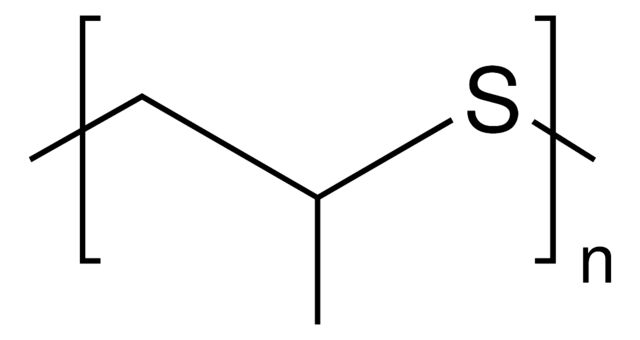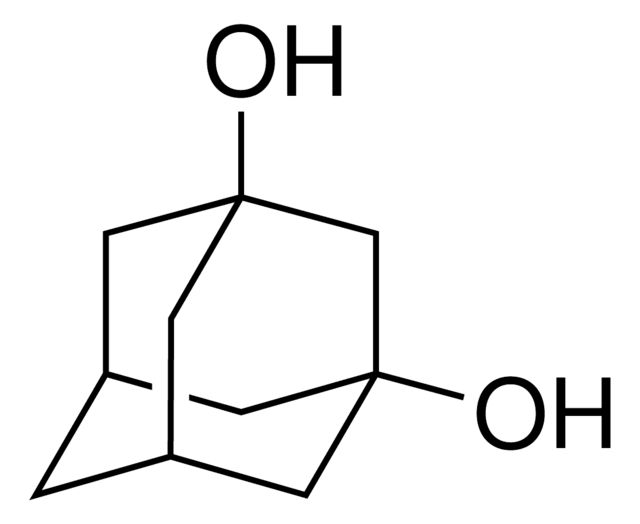937274
Poly(propylene sulfide)
Manufacturer: Sigma Aldrich
CAS Number: 9064-17-9
Select a Size
| Pack Size | SKU | Availability | Price |
|---|---|---|---|
| 937274-1G | 937274-937274-1G | In Stock | ₹ 52,544.55 |
937274 - 937274-1G
In Stock
Quantity
1
Base Price: ₹ 52,544.55
GST (18%): ₹ 9,458.019
Total Price: ₹ 62,002.569
Agency
suitable for controlled release
Quality Level
100
form
viscous liquid
mol wt
average Mw 15000
color
colorless
application(s)
advanced drug delivery (tissue engineering, medical devices)
storage temp.
2-8°C
Description
- General description: Poly(propylene sulfide) (PPS) is a thermoplastic polymer that has shown potential for use in various biomedical applications due to its biocompatibility, biodegradability, and tunable mechanical and chemical properties.
- Application: One promising application of PPS is in drug delivery. PPS nanoparticles can be synthesized and loaded with drugs, providing sustained release and targeted delivery to specific tissues or cells. PPS also has good stability in biological environments, which is important for maintaining drug efficacy during storage and delivery.PPS has also been explored as a material for tissue engineering. Its biocompatibility and ability to be tailored for specific mechanical and chemical properties make it a potentially useful scaffold material for various tissue types, including bone and cartilage. PPS has also been shown to support cell attachment and growth in vitro.In addition to drug delivery and tissue engineering, PPS has also been investigated for use in medical devices such as catheters and sutures. Its chemical resistance and low toxicity make it a potential alternative to traditional materials like silicone and nylon. Overall, PPS has shown promise for various biomedical applications, and ongoing research is exploring its potential in areas such as wound healing, cancer therapy, and regenerative medicine.
- Features and Benefits: Biocompatible Biodegradable Tunable mechanical and chemical properties Ideal for sustained release and targeted delivery Chemically resisitant and low toxicity
SAFETY INFORMATION
WGK
WGK 3
Flash Point(F)
Not applicable
Flash Point(C)
Not applicable





